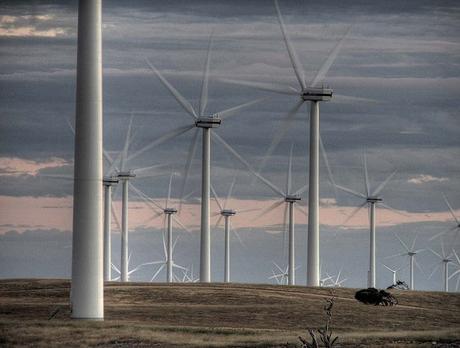Norway’s $1tn wealth fund, the world’s biggest sovereign wealth fund run by the Norwegian central bank, decided to part with investments in firms exploring oil and gas. However, it will continue to hold stakes in oil and gas major firms like BP and Shell but only in their renewable energy divisions.
Norway is Western Europe’s biggest oil and gas producer, and its sovereign wealth fund is officially known as the Government Pension Fund Global or GPFG. It invests the proceeds from the oil industry of the country.

GPFG announced that it would phase out oil exploration from its “investment universe.” Its assets even exceed the sovereign wealth funds of rivals like China.
Following the advice of the central Norges Bank, the shifting of strategy will affect its equity holdings 1.2% equivalent to about 66bn (£5.7bn) Norwegian krone.
It was not the climate concerns that influenced the decision but the fact that reducing the exposure to the fall in oil price would protect the economy of Norway. The Norges Bank that manages $1tn wealth fund of Norway asked ministers to take measures to avoid the consequences of fund’s value being hit by a lasting oil price fall.
However, according to Norway’s finance ministry, oil will still be “central to Norway’s economy,” reports BBC News.
The stakes of GPFG in large firms include 2.4% of Shell and 2.3% of BP as they have renewable units and where the fossil fuel companies are involved in renewable energy, it will retain stakes there. It believes that these companies in the future will play a significant role in the development of green energy.
One hundred thirty-four companies in which GPFG will sell stakes include UK-listed firms Premier Oil, Tullow Oil, Soco International, Nostrum Oil & Gas, Ophir Energy, and others. After the announcement, the share price fell in all the companies, knocking £130m off the market value of their combined stock.
“The objective is to reduce the vulnerability of our common wealth to a permanent oil price decline,” said Norway’s finance minister, Siv Jensen. “Hence, it is more accurate to sell companies which explore and produce oil and gas, rather than selling a broadly diversified energy sector.”
Greenpeace UK’s oil campaigner, Charlie Kronick, said: “This partial divestment from oil and gas is welcome, but not enough to mitigate Norway’s exposure to both global oil and gas prices and the wider financial ramifications of climate change.”
“However, it does send a clear signal that companies betting on the expansion of their oil and gas businesses present an unacceptable risk, not only to the climate but also to investors,” Kronick explained.
He added that “While BP and Shell are excluded from the current divestment proposal, they must now recognize that if they continue to spend billions chasing new fossil fuels, they are doomed.”
According to the website of GPFG, it has gathered about $1tn of wealth by investing the proceeds from the supplies of North Sea oil of Norway. The government stressed that oil would be an “important and major industry in Norway for many years to come.”
“The state’s revenues from the continental shelf are, as a general rule, a consequence of the profitability of exploration and production activities,” it said.
Norges Bank will perform a review of climate risk in the GPFG in case there is a sign that Norway could step up its policy against oil investment.
The recommendation of the government still needs to get approval from the country’s parliament before moving ahead.
The director of finance for the Institute for Energy Economics and Financial Analysis, Tom Sanzillo, said: “These are very important statements from a big fund. They’re doing it because fossil fuel stocks are not producing the value that they have historically.
“It’s also a warning to the integrated oil companies that investors are looking at them to move the economy forward to renewable energy.”
Tom said that investment of GPFG strategy also “underscores that the fracking business model is unsustainable.”
The government still owns 67% of Equinor, the oil and gas company that pumps two million barrels of oil each day as it is diversifying into the wind and solar energy.

